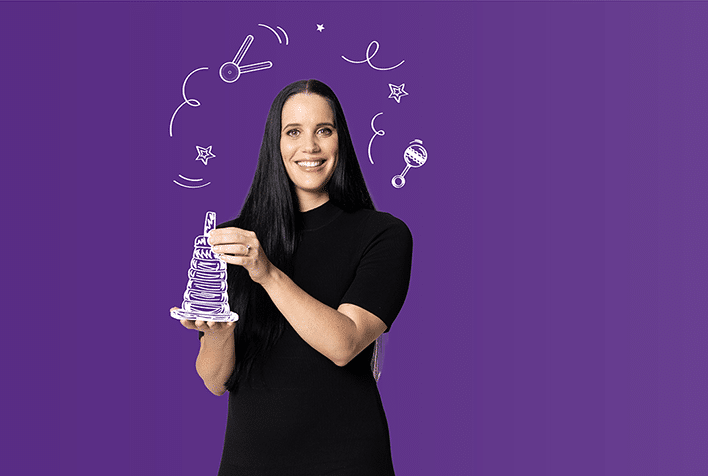
“Research and evidence-based practice have become the cornerstone in clinical care. The traffic light paper is the perfect example of this – the traffic light system provides a guide that allows clients, parents, carers and clinicians start conversations about what therapies to do and not to do. It provides the knowledge to empower clients and their families to make evidence-based decisions.”
As a First Nations Woman, Emma has been motivated by Cerebral Palsy Alliance’s support of diversity, for both clients and employees alike. Initiatives like the Diversity and Inclusion Group (Burbangana), the Reconciliation Action Plan (RAP) in progress, and the training and scholarship programs provided.
‘RAP helps provide the framework and has given us a set of practical actions that will drive CPA’s contribution to reconciliation both internally and in the communities where we operate and service clients, advancing reconciliation by developing respectful relationships and creating meaningful opportunities with Aboriginal and Torres Strait Islander peoples.’
In the future, Emma would like to continue to do more research in cerebral palsy, especially with young children and infants. She hopes there will be more clinical trials conducted in under researched areas of cognition, dose and behaviour interventions.
CPA has helped Emma become a passionate advocate for her clients and their families. She excited the innovative research that is happening at the Cerebral Palsy Alliance Research Institute and is passionate about sharing her knowledge and supporting the development of others.
This is the magic that can happen when
Great minds think differently!